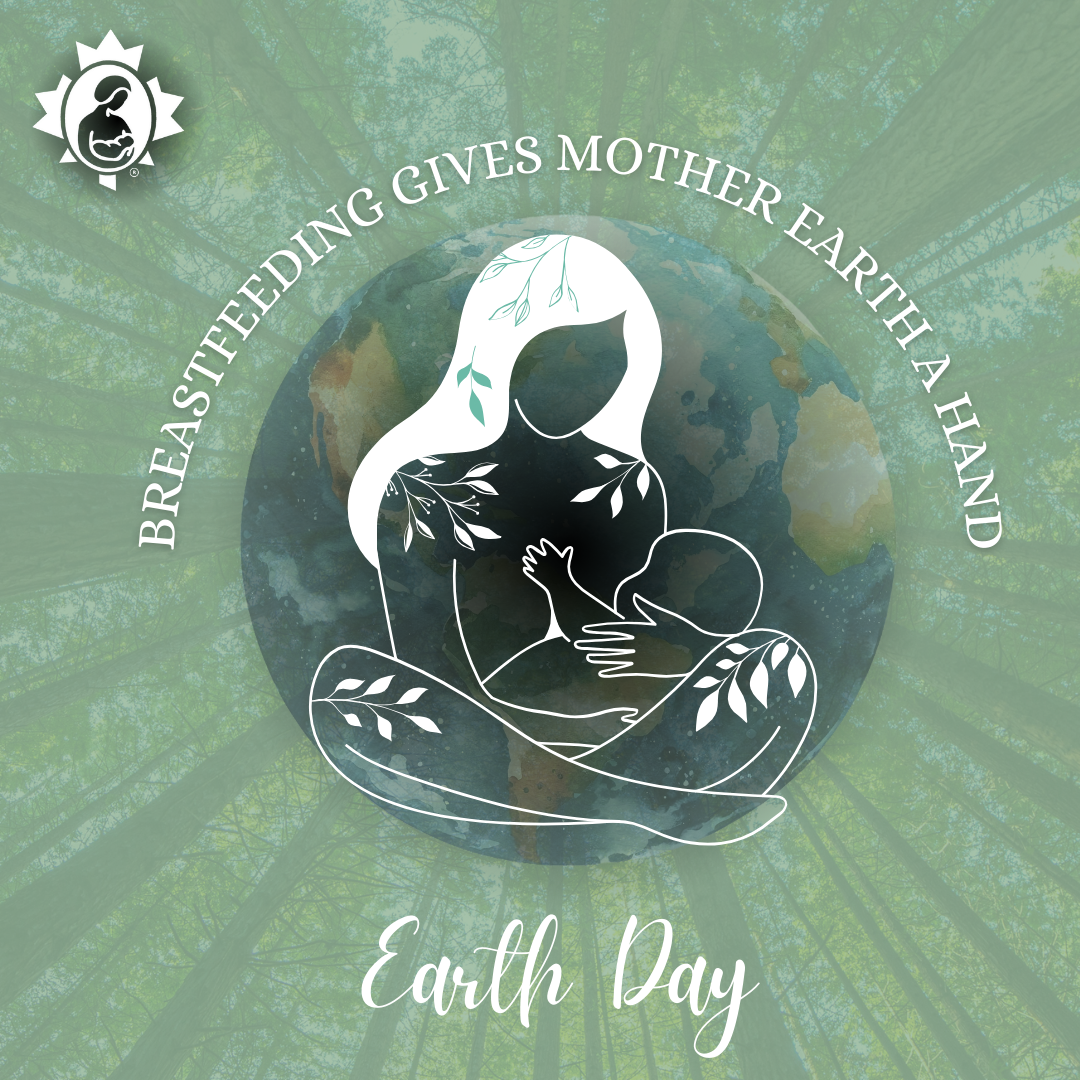
As people consider the health and wellbeing of our planet, breastfeeding remains perhaps one of the most overlooked ways of helping the planet every day.
Human milk requires no packaging, shipping or disposal of waste. Human milk is the ultimate local food! And it is all a baby needs for the first six months of life. As a nursing mother, you require about 500 additional calories and 1 extra litre of water per day beyond what you need when you are not nursing. This is far less than the energy and water required to produce formula. Because your milk is produced by your body and not by an industrial process, your milk also does not pollute the environment or result in the production of greenhouse gasses.
Tremendous amounts of energy, fertilizers, pesticides and water are required to grow feed for dairy cows (to produce cow milk-based formula) and grow soybeans (to produce soy-based formula). Producing these crops and providing land for these animals results in deforestation, soil depletion and erosion. Dairy cows emit large amounts of methane, a greenhouse gas and produce large quantities of fecal waste which can pollute local environments.
Transporting cow milk and soybeans to the production facility, as well as the processing of the ingredients into formula requires significant inputs of energy and releases large amounts of carbon dioxide into the environment. It takes a lot of energy, paper and metal resources and plastics to produce the packaging for formula products, bottles, teats, sterilizers, etc. When these items are finally thrown away the waste takes up precious space in our landfills. Energy is required to sterilize bottles. Each day it takes about 1 litre of boiled water to prepare formula and 2 litres to sterilize the bottles and nipples.
Exclusive breastfeeding is a natural child spacer. The contraceptive effect of exclusive and unrestricted breastfeeding offers 98% protection against another pregnancy in the first six months. Often, continued breastfeeding will postpone return of fertility for a year or longer. When mothers delay the return of their menstrual cycles they use fewer menstrual products which end up in landfills or incinerators.
While breastfeeding is a wondrous act of nurturing between parent and child, it also has an enormous impact on the global ecosystem. Breastfeeding supports a healthier planet.
More information on the environmental effects of breastfeeding vs formula feeding can be found in Formula for Disaster: weighing the impact of formula feeding vs breastfeeding on environment © BPNI / IBFAN Asia 2014 Authors: Alison Linnecar, Arun Gupta, JP Dadhich and Nupur Bidla
Please consider supporting LLLC.
Updated 2024
